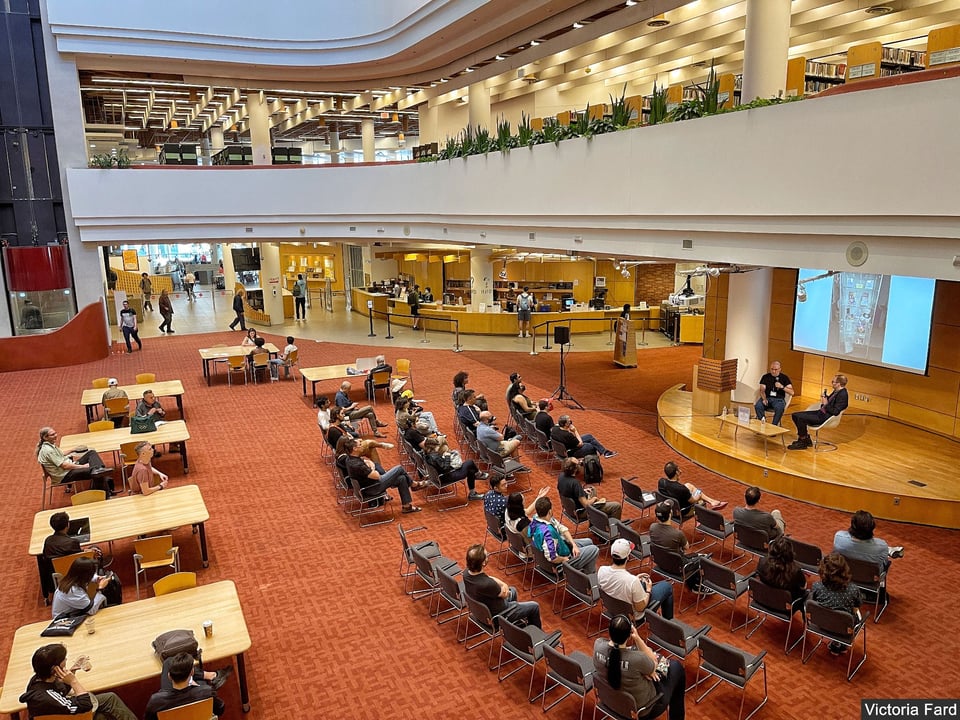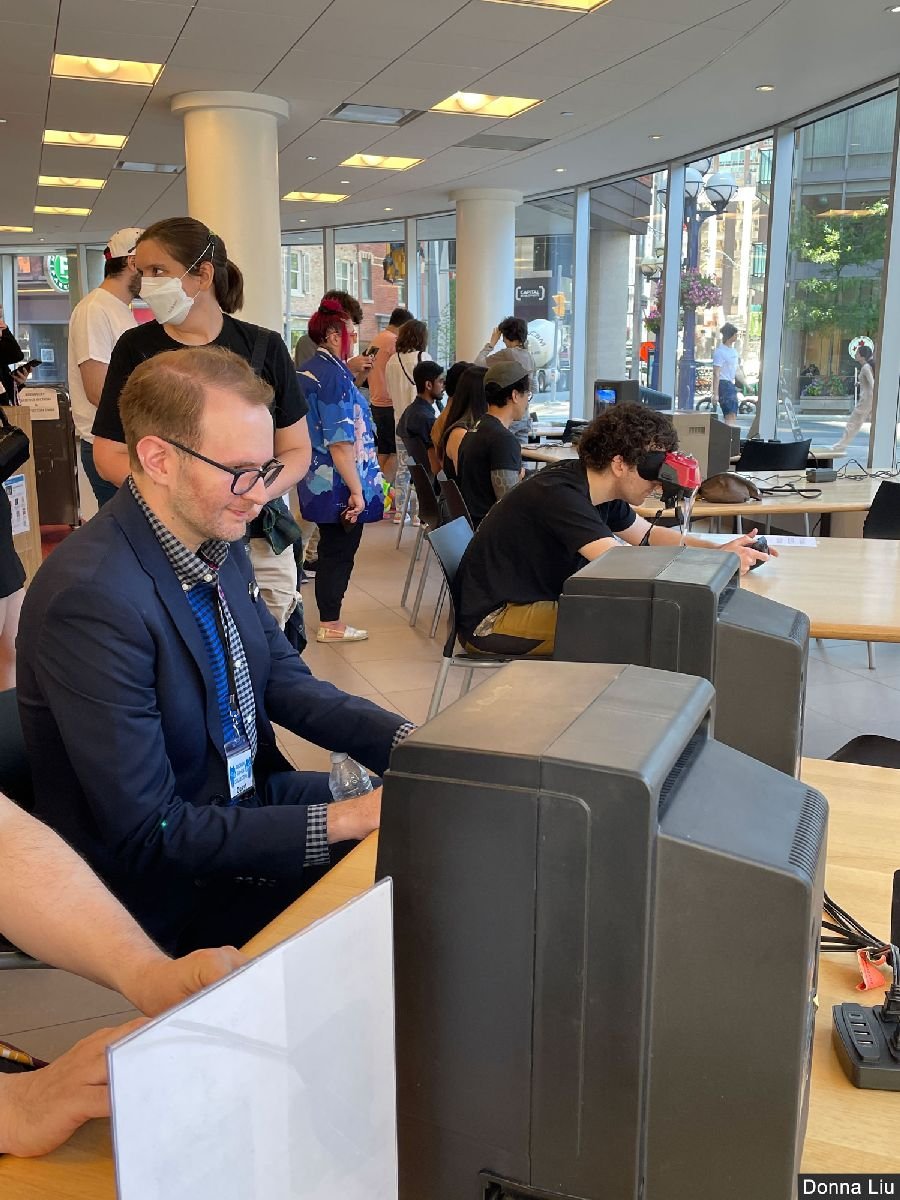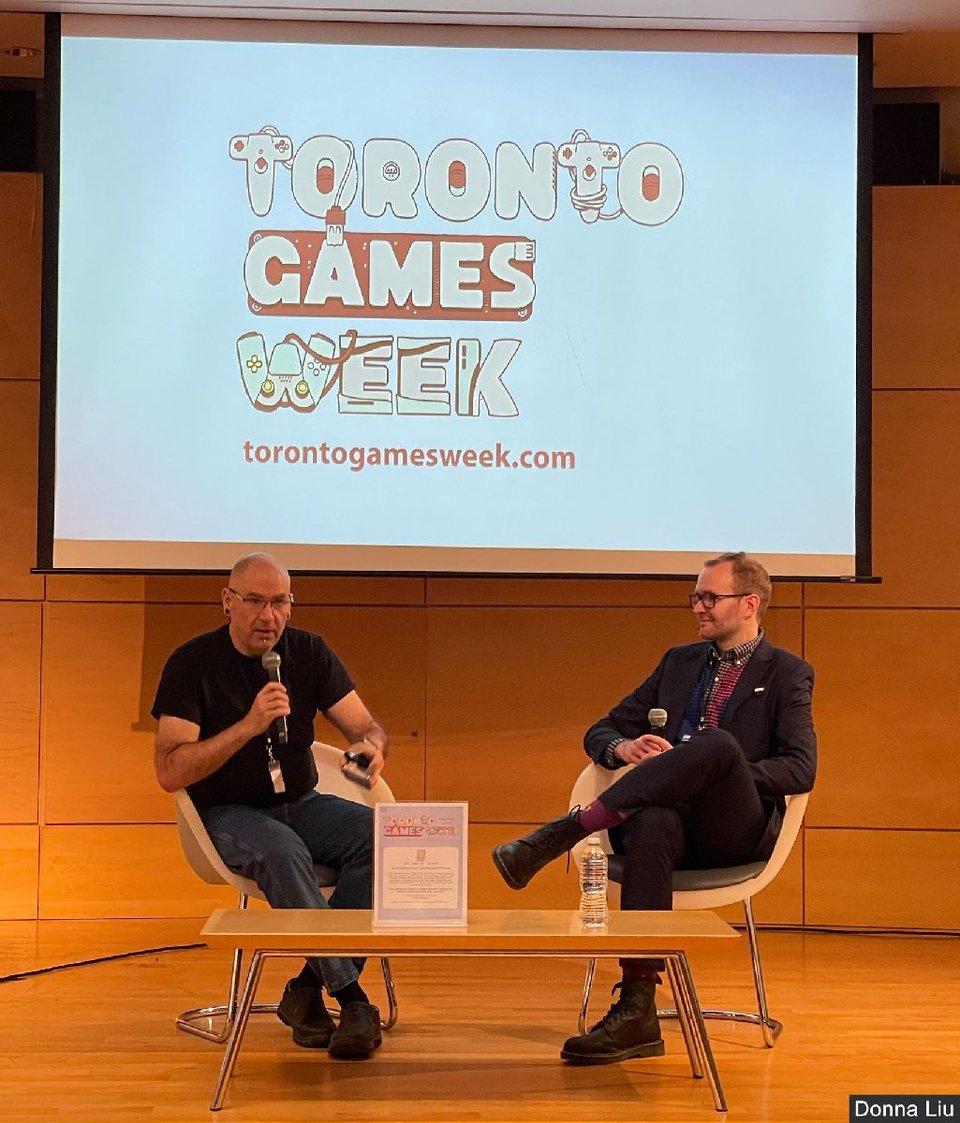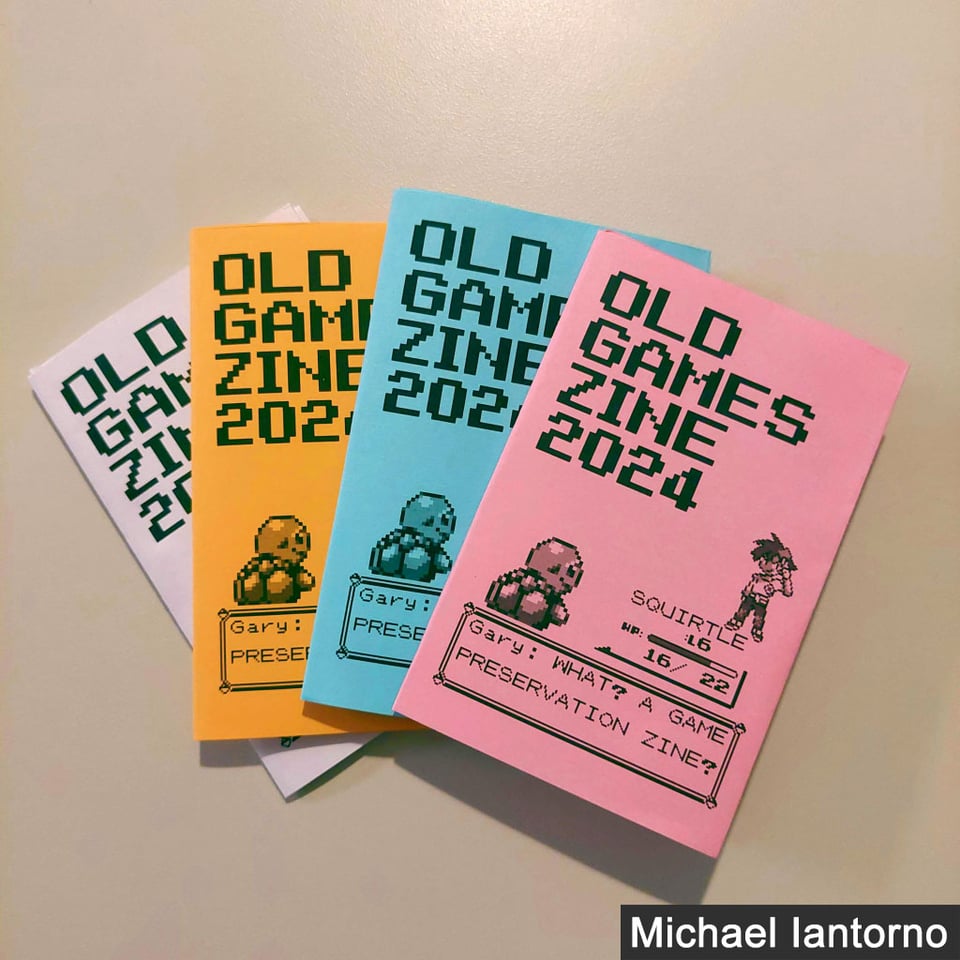Broken Games Collective: Let's recap Toronto Games Week 2024 ✨

Welcome to the Broken Games Collective newsletter! Here, you’ll find updates on the Collective’s ongoing efforts to restore access to games.
In this premiere issue, we recap our Retro Games Play and Preserve Forum at Toronto Games Week 2024 and the game preservation tables at the Canadian Games Studies Association’s annual conference.
And we’re happy to announce that you can now join the Broken Game Collective’s Discord server! Just follow this link (and don’t forget to introduce yourself): https://discord.gg/KPnXxknt4H
Retro Games and Preservation in the Browsery

As part of the Retro Games Play and Preserve Forum at Toronto Games Week, the Broken Games Collective organised several interactive public activities in the Toronto Reference Library’s Browsery.
In partnership with the University of Toronto Mississauga Library, our team showcased rare and vintage games from its Syd Bolton Collection alongside some items from Derek Quenneville’s collection of unique game materials. Browsery visitors had the opportunity to:
Play Hotel Mario on the Philips CD-i, Virtua Racing Deluxe on the Sega 32X, Teleroboxer on the Nintendo Virtual Boy, and Mine Storm and Multi-Cart on the Vectrex in the Last Chance To Play section.
Compare three versions of Donkey Kong on the Atari VCS, Intellivision, and the ColecoVision in the What’s In A Game section.
Conserve and preserve their games using our cartridge cleaning equipment and Sanni Cart Reader.
Folks even got to take selfies and print them off with a Game Boy Camera and Printer! We had over 150 attendees in the Browsery over the course of the day, and it was exciting to chat with folks about their passion for videogame history, preservation, and exhibition. We were thrilled to have folks lineup to get their games saved at our preservation station and see a crowd develop around Hotel Mario!
Fireside Chat

Advocacy
For the day’s main event, we invited Phil Salvador, Library Director at the Video Game History Foundation, in for a fireside chat to discuss game preservation, the VGHF, and his own work.
Throughout the chat, Phil showed off photos of game artefacts from the VGHF’s collection — including items they exhibited at GDC 2024 — and challenged game developers to “start thinking more about what ‘game history’ means”. This sort of public-facing advocacy work is central to the VGHF’s mission.
This work also includes Phil’s recent testimony to the US Copyright Office, in support of new copyright exemptions aimed to help libraries and archives to share material to researchers remotely. Right now, such access can only be provided in-person, which limits it to those who can afford to travel to physical archives and collections.
The testimony was supported by an extensive study conducted by the VGHF (in partnership with the Software Preservation Network) that found that “87% of classic video games released in the United States are critically endangered”. Those games are commercially unavailable, making them effectively impossible for most people to access via legal means.
Here in Canada, we recently received some good news on the copyright front, as a recent federal court ruling has determined that digital locks can’t override fair dealing rights (that allow for the use of copyrighted material without infringement). Phil was very excited about this development, and we’re all hopeful that remote access to materials may soon become possible in Canada.
Conflicting preservation interests and challenges
We also discussed some ways that game preservation can be difficult even when all involved parties want to make a commercial re-release. For example, a game developer trying to licence intellectual property from another company may be asked to pay a hefty upfront legal fee just to verify the ownership of that IP.
Why would that barrier exist in the first place? When we think about game preservation, there’s a tendency to concentrate on a game as a standalone object, eschewing other materials involved in production. These may include press releases, design documents, and (crucially) even legal contracts! Even when such contracts still exist, they’re not likely to be digitised and or easily accessed.
Furthermore, even when legal challenges have been figured out, licences tend to have limited commercial window. Phil spoke about how the classic Konami X-Men arcade game had a remastered version released digitally for Xbox 360 and PlayStation 3, but it could only remain available for three years. Even with this release agreement, all of the game’s voice acting had to be re-recorded with soundalikes due to legal issues!
All is not doom and gloom, however. Commercial interests and private preservation interests sometimes align in harmony: Phil shared examples like OpenLara, Knockout City, and City of Heroes—efforts that have made old or discontinued games accessible and playable again in various configurations.
It’s all about context
To close out the fireside chat, we talked more about the importance of preserving the materials and context around a game. Phil posed a question: “What does it mean to preserve baseball?”, explaining that simply having the rules and statistics does little to capture the fullness of what baseball is.
Carrying this idea over to videogames, he talked about the idea of preserving Fortnite, an ever-changing, online-only, live service game. If Fortnite were to somehow disappear, we’d only be left with the final version of the game’s code, which does not tell us the complete story of the game’s development and reception. Phil suggested that, instead, it may be more relevant to save recordings of in-game concerts and events to better understand Fortnite and its place in game history.
We also looked through several examples of this type of historical context: a corporate fax to a Konami office telling employees “NO GAMBLING EFFECTIVE IMMEDIATELY”, Nintendo’s first North American commercial, and merrit k’s LAN Party book that documents early collaborative PC gaming through hundreds of photographs.
Many thanks to Phil for joining us, and for sticking around afterwards to answer questions and hang out with the audience. We’d also like to thank Game Arts International Network (GAIN) for their generous assistance in bringing Phil to Toronto for the first time!
Links
Ars Technica: Can an online library of classic video games ever be legal?
Michael Geist: Huge Win for Copyright User Rights in Canada: Federal Court Rules Digital Lock Rules Do Not Trump Fair Dealing
Thames & Hudson: LAN Party
Game Preservation Tables at CGSA

Michael Iantorno, a member of the Broken Games Collective, was out in Montréal for the Canadian Game Studies Association’s annual conference! Game scholars from all over the country descended upon the city to talk about their latest research.
As part of a collaboration with Université du Québec en Abitibi-Témiscamingue (UQAT), Michael joined forces with his colleague Alex Custodio from the Residual Media Depot along with LUDOV lab members Dany Guay-Bélanger and Francis Lavigne. The quartet showed off a variety of game preservation projects they have been undertaking at Concordia University and Université de Montréal, including:
Game Boy mods, ranging from screen upgrades to photovoltaic panels.
Satellaview hacking and preservation/analysis software.
Game artefacts from the LUDOV collection, including CRTs and classic consoles.
Oral history approaches to studying game history.
Additionally, event visitors were able to take home an Old Games Zine that discusses game preservation initiatives across Canada! No worries if you missed picking one up—you can download a print-and-fold version on the Broken Games Collective website.
Special Thanks
Thank you to our partners for supporting this event: Toronto Games Week, Game Arts International Network, Canadian Game Studies Association, Toronto Public Library, University of Toronto Mississauga Library, Concordia University, and the Video Game History Foundation.
